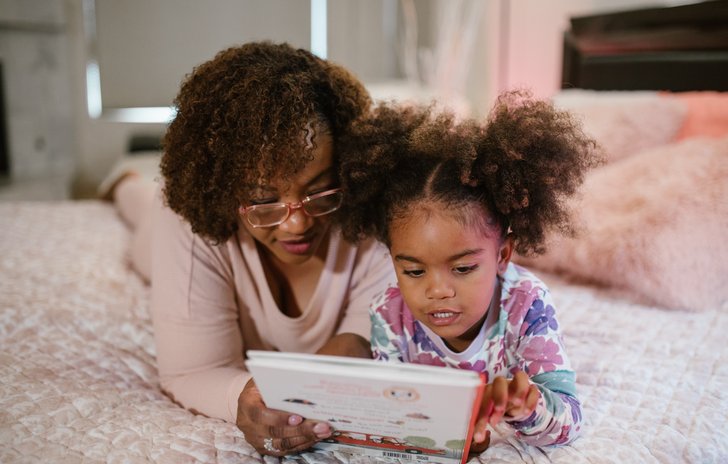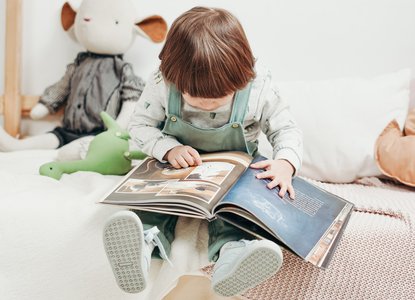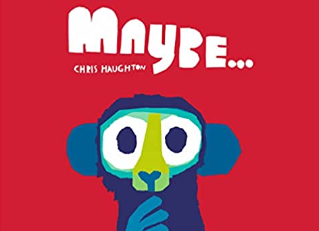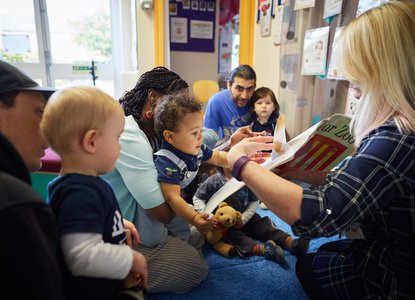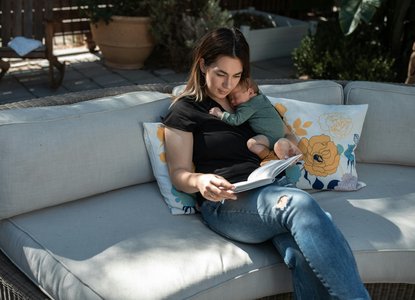Helping your child choose what to read
Baby book choice:
You can help your baby become interested in books by letting them choose which ones you read.
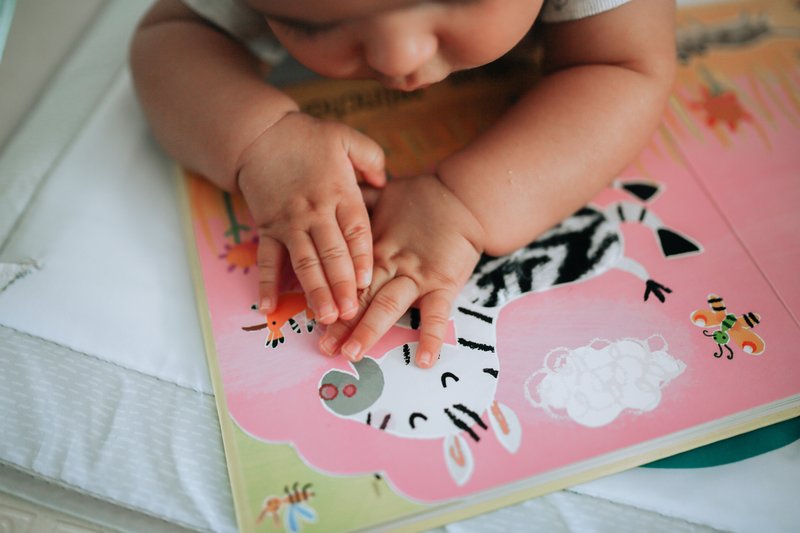
Babies will begin to show you which books they like by their responses to them. Notice which ones they enjoy by observing their eye focus, attempts to touch, the sounds they make, and their facial expressions. For younger babies you can choose the books you read together, and the ones you read often, based on these responses.
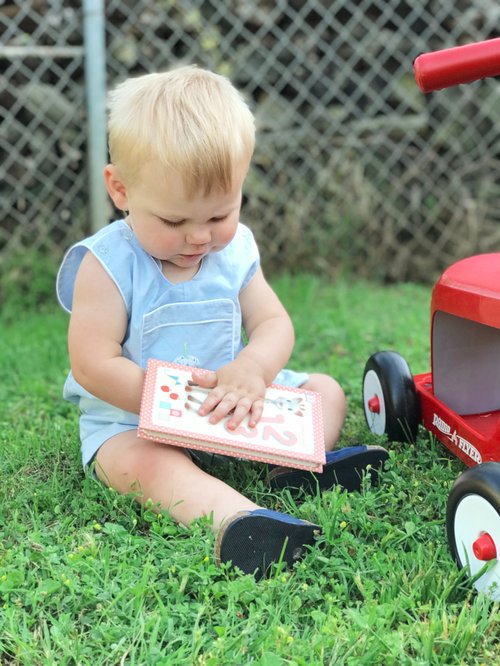
As your baby gets a little older they will be able to play a more active role in choosing which books you read:
Bring together a small collection of baby books. Borrow some from your local library if you don’t have many at home.
Try to offer a selection of books that look quite different, or are about things your baby likes, such as animals or cars.
Put a few books in front of your baby and encourage them to choose one.
Find a calm, quiet place and allow time to look at the book together. Let your baby take the lead, maybe they can turn the pages.
Point to the pictures and describe what you see. For example, I can see an elephant. When you do this, wait for your baby to respond before you make another comment. Follow your baby's cues too, if they point to, or look at something in the book, talk about what it is. This will support their language development as you introduce new words.
Acknowledge and praise their interactions with the book, by pointing or making encouraging sounds.
Ask them to choose a book again at your next story time. They might choose the same one if they like it, so you can read it again – babies enjoy looking at their favourite books often!
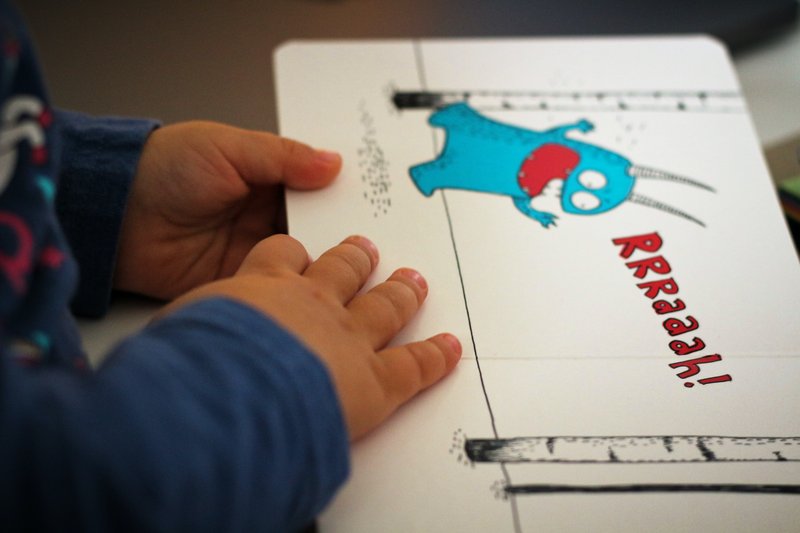
Supporting children's book choices:
As children get older you can talk together about which books they like and why. When they are choosing a book, you can help them, for example, by reading the information on the front and back covers or by helping them to find books about things that interest them. Your child may choose to read a story, a non-fiction book or maybe a comic.
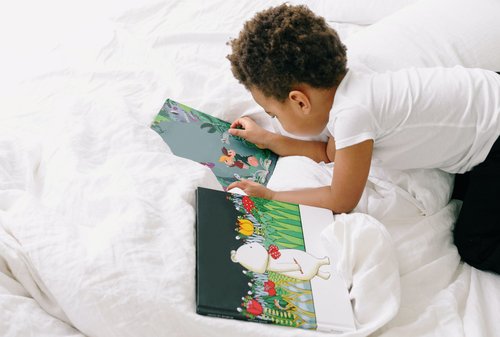
Once they have chosen a book, sit down together to look at it. You don’t have to read it straight away. You can go through the pictures and talk to your child about what you both notice. Make comments and ask questions, such as; Can you see any animals?, Uh oh, look what's happened!, and What do you think is happening to the boy?
While you read together, pause to give your child time to look at the pictures, make comments and ask questions. Ask them to tell parts of the story back to you, or predict what might happen next. Your conversations about the story and relationship with the characters will develop with each reading of a book.
At the end, find out what they think. What did you like about this book? Would you like to read it again? This will help you and your child to learn the sorts of books your child enjoys.
This sort of activity helps your child like books and prepares them for learning to read when they get to school.
Re-reading your child's favourite stories
Repetition is important for all types of learning, including reading and speaking. So, the favourite story that you read again, and again, and again, is boosting your child’s development. It will be helping them to notice and remember patterns, words, and concepts.
A favourite book can be comforting in its familiarity. It can boost children’s confidence because they understand it and know what to expect, they can fully engage in the excitement of anticipating what happens next.
To support your child to develop their own preferences however, you do need to expose them to a wide range of books. Books can introduce children to new places, people, and creatures, both real and imaginary. So it is also important that children have the opportunity to explore both fiction and non-fiction books from a range of authors, and showing a variety of pictures; photographs as well as illustrations.
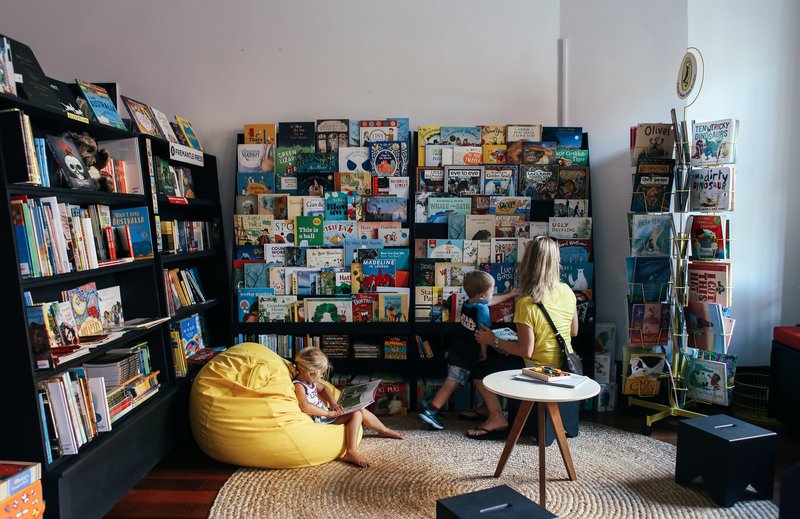
Good to know
Choosing a book gives your child the opportunity to feel in control and builds their confidence with making decisions.
Top tip!
Join your local library. You and your child can explore a huge range of books for free. Many libraries run story and rhyme sessions which will give you even more opportunities to explore books together.
